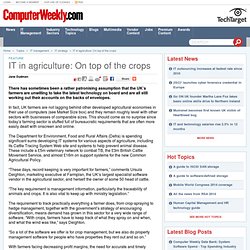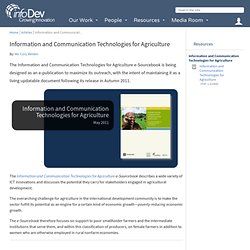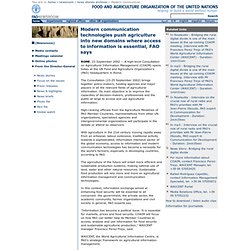

Precision Farming content from Farm Industry News. Agriculture is full of mind-spinning new products, technology and trends that promise big changes for Midwest crop farmers.

The editors at Farm Industry News have pulled together an informal list of the people, products, ideas and trends that may make your operation more efficient and more profitable in the future. Check out “what's new and what's next” to help you get ready for this new era of high-stakes farming. <em>Autonomus tractors</em> Autonomous tractors Tractors that drive themselves with a computer in control are nearly here. Biofuels So much has already been said about biofuels that is seems a bit redundant to say anymore. <em>Biomass Harvesters</em> Biomass harvesters For years, the problem has been how to get rid of excess crop residue so it doesn't affect crop emergence. Controlled traffic Just how much does compaction affect your crop yields? Drought-tolerant crops Seed geneticists found the easy traits first, and now they are working overtime on the tough ones. Fleet management.
Tech trends 2012. IT in agriculture: On top of the crops. There has sometimes been a rather patronising assumption that the UK’s farmers are unwilling to take the latest technology on board and are all still working out their accounts on the backs of envelopes.

In fact, UK farmers are not lagging behind other developed agricultural economies in their use of computers (see Market Size box) and they remain roughly level with other sectors with businesses of comparable sizes. This should come as no surprise since today’s farming sector is stuffed full of bureaucratic requirements that are often more easily dealt with onscreen and online. The Department for Environment, Food and Rural Affairs (Defra) is spending significant sums developing IT systems for various aspects of agriculture, including its Cattle Tracing System Web site and systems to help prevent animal disease. These include a £5m veterinary network to combat TB, the £3m British Cattle Movement Service, and almost £16m on support systems for the new Common Agricultural Policy.
E-Agriculture. FAO: Food and Agriculture Organization of the United Nations, for a world without hunger. Information and Communication Technologies for Agriculture. By: Ms.

Cory Belden The Information and Communication Technologies for Agriculture e-Sourcebook is being designed as an e-publication to maximize its outreach, with the intent of maintaining it as a living updatable document following its release in Autumn 2011. The Information and Communication Technologies for Agriculture e-Sourcebook describes a wide variety of ICT innovations and discusses the potential they carry for stakeholders engaged in agricultural development.
The overarching challenge for agriculture in the international development community is to make the sector fulfill its potential as an engine for a certain kind of economic growth—poverty-reducing economic growth. The e-Sourcebook therefore focuses on support to poor smallholder farmers and the intermediate institutions that serve them, and within this classification of producers, on female farmers in addition to women who are otherwise employed in rural nonfarm economies. Modern communication technologies push agriculture into new domains where access to information is essential, FAO says. ROME, 23 September 2002 -- A high-level Consultation on Agricultural Information Management (COAIM) opens today at the UN Food and Agriculture Organization's (FAO) headquarters in Rome.

The Consultation (23-25 September 2002) brings together policy-makers, funding agencies and major players in all the relevant fields of agricultural information. Its main objective is to improve the capacities of decision-makers, professionals and the public at large to access and use agricultural information. High-ranking officials from the Agriculture Ministries of FAO Member Countries, representatives from other UN organizations, specialized agencies and intergovernmental organizations will participate in the debate or attend as observers. The agriculture of the future will entail more efficient and sustainable production systems, making optimal use of land, water and other natural resources. "Information has become a political issue. The first COAIM took place in Rome in June 2000. Technologies for Agriculture and Humanitarian Development.